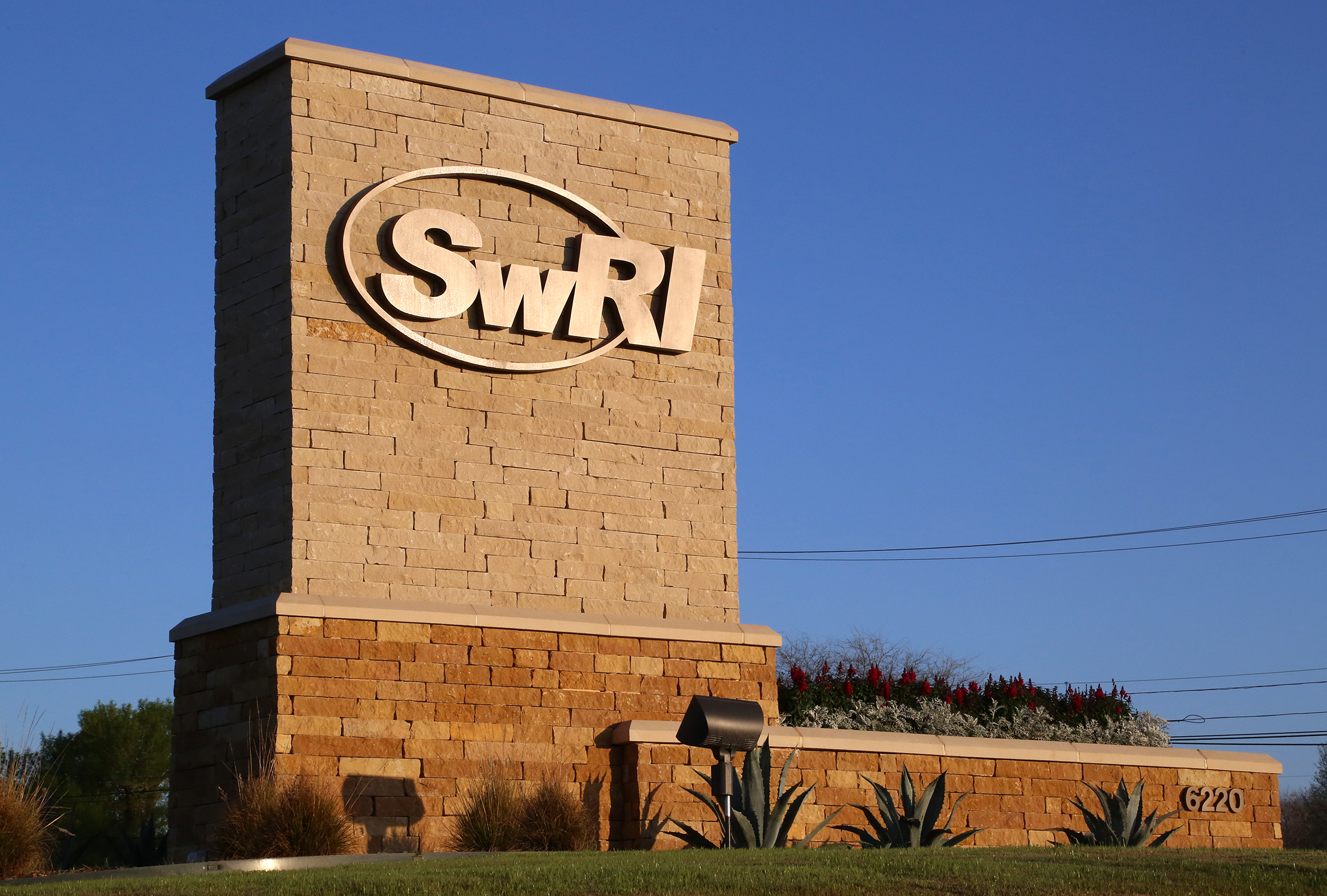
Southwest Research Institute’s Space Science and Engineering Division, with 465 employees in three states, has been restructured to create two new technical divisions. Dr. James L. Burch, vice president of the Space Science Division, will become Senior Vice President leading SwRI’s new Space Sector organization, encompassing all three divisions.
Dr. Robin Canup will lead the new Solar System Science Division, based in Boulder, Colorado, and Michael McLelland will lead the new Space Systems Division. Both Canup and McLelland, who were previously assistant vice presidents, have been promoted to vice president effective October 1.
“This is an exciting change that represents the presence SwRI has in the space science industry,” Burch said. “This phenomenal new growth gives us the opportunity to reorganize into a Space Sector with three divisions that can each forge their own futures while continuing to work closely together.”
Burch has shaped SwRI’s space science program since he joined the Institute in 1977 and founded what is now the Space Science Division in 1985. He has also played a leading role in understanding the Earth’s magnetosphere, space weather and how it affects daily life on Earth. He conceived the concept for NASA’s first medium-class Explorer, the Imager for Magnetopause-to-Aurora Global Exploration (IMAGE) spacecraft as well as the current Magnetospheric MultiScale mission, which is studying a ubiquitous process known as magnetic reconnection.
Burch has played a significant role on multiple NASA advisory committees, helping define the agency’s research for more than two decades. He chaired the National Research Council’s Committee on Solar and Space Physics and led more studies for NASA than any other chair, past or present. For his years of service, Burch was named a lifetime national associate of the National Academies. His numerous awards and honors include the American Geophysical Union’s 2021 William Bowie Medal, the organization’s highest honor, and NASA’s Distinguished Public Service Medal, its highest honor for non-government employees.
Canup leads the new Solar System Science Division based in Boulder, which has three departments: Space Studies, Space Operations, and Solar and Heliospheric Physics. The division will focus on planetary science, solar physics, and space mission development and operations.
“This is an exciting opportunity for our divisions to grow while continuing to collaborate on the important and impactful research that our Institute is already so well known for. I’m honored to lead this new division and this remarkable group of people,” Canup said.
Canup joined SwRI in 1998 and is renowned for her significant contributions to planetary science, most notably her studies concerning the formation of planets and their satellites. Her research demonstrated that a single impact from a Mars-sized object could have produced the Earth-Moon system.
She has received several prestigious honors during her career including the American Astronomical Society Division for Planetary Sciences’ Harold Urey Prize (2003) and the American Geophysical Union’s Macelwane Medal (2004). In 2012, she was elected a member of the National Academy of Sciences, and, in 2017, she was named a member of the American Academy of Arts and Sciences. In 2020, she was named co-chair of the Planetary Science and Astrobiology Decadal Survey for 2023-2024.
McLelland leads the new Space Systems Division located at SwRI’s main campus in San Antonio. The new division will focus on developing next-generation space observation missions and enabling technologies to support fundamental space science research, national security and commercial applications. It will have four departments: Earth, Oceans, and Space; Space Avionics; Space Engineering; and Spacecraft Development.
“Space brought me to the Institute, and the opportunity to learn from leading experts and build something new for each program has kept me engaged,” McLelland said. “Our programs have long-term impact and many make a significant difference on a daily basis.”


